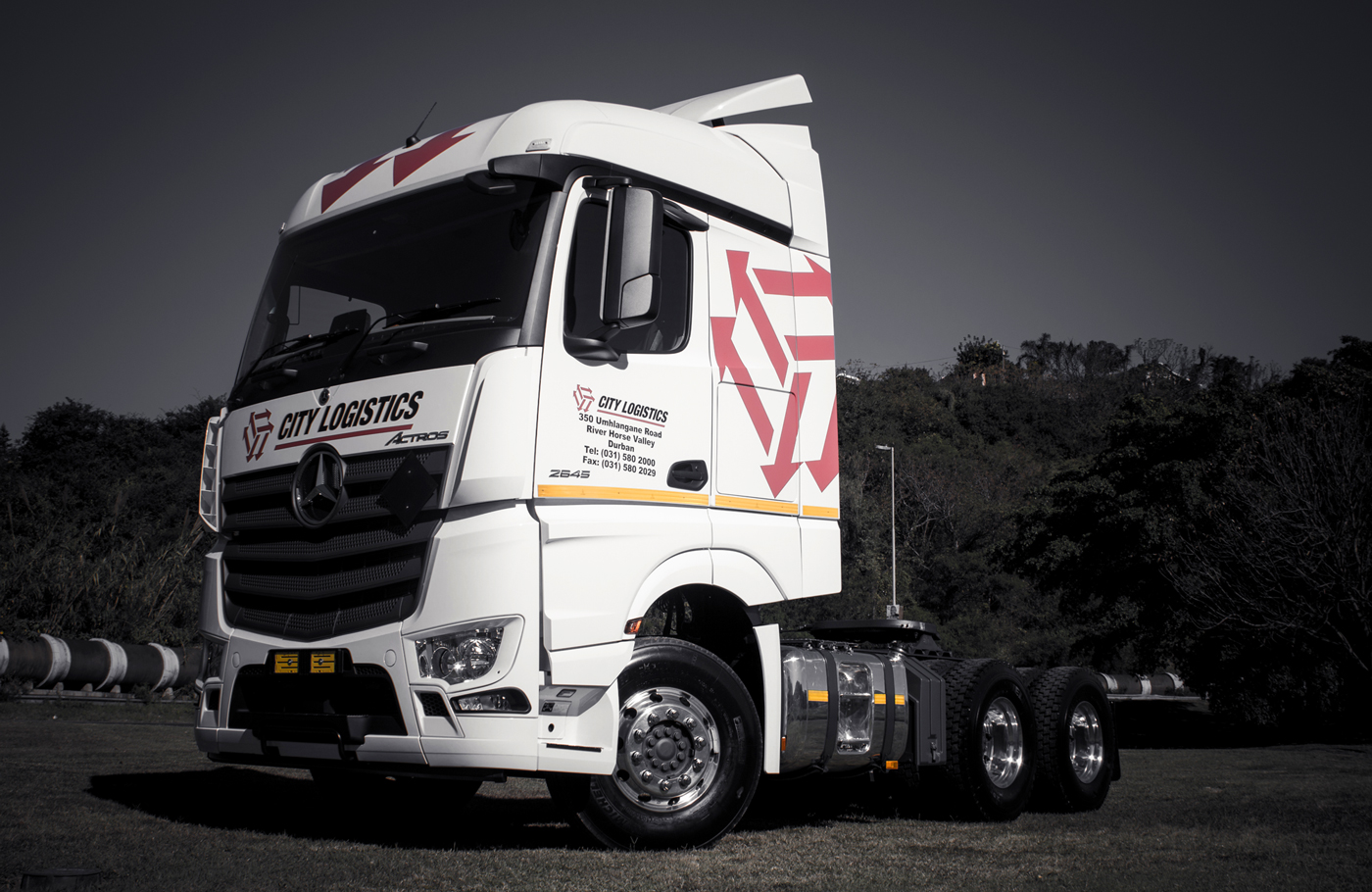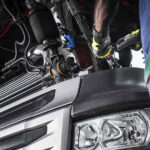Revealed: the future for e-commerce in South Africa
Revealed: the future for e-commerce in South Africa
South Africa’s largest privately-owned logistics provider, City Logistics, has acquired 100% of Fastway Couriers South Africa with private equity fund manager Clearwater Capital. On the back of this, CHARLEEN CLARKE speaks to City Logistics CEO Ryan Gaines about the transaction, as well as the future of e-commerce in South Africa.
Let’s kick off with some background to your Fastway Couriers acquisition, starting with City Logistics. We know that it is the largest privately-owned logistics provider in South Africa. But when did the company start and how has it developed?
City Logistics started in South Africa in 1987. It was initially a small parcel courier called City Couriers. Our founder and non-executive chairman, Richard Fisher, delivered parcels between two or three Mr Price stores in KwaZulu-Natal, using a motorbike. To supplement his income, he delivered Steers sauces.
This incredible story of how our company began is indicative of our can-do attitude. We have entrepreneurial beginnings and a small company mindset that allows us great flexibility. Furthermore, we are passionate about what we do.
Did the company grow alongside the growth of Mr Price, as it opened more and more stores?
Yes. Initially, City Logistics grew with the extension of the Mr Price stores, but then it began diversifying into other areas of the transport and logistics business. We currently work for most of the major retailers in South Africa and we’ve enjoyed good growth every year. Now, our business model is to grow with significant customers and to support small customers too.

Your growth over the last 30 years has been pretty spectacular, especially considering the company’s one-motorcycle beginnings. How many depots, vehicles, and warehouses do you have now?
Today, we have 14 depots supporting a fleet of over 1 200 vehicles, travelling more than 170 000 km per day across Southern Africa. We also have over 100 000 m2 of warehousing space to provide an exclusive supply chain solution, as well as over 86 000 delivery points throughout Southern Africa.
Let’s move on to Fastway Couriers. When and where was this business started?
Fastway Couriers was established in 1983 in Napier, New Zealand, and is now a globally franchised courier company with over 30 years of experience and a presence in New Zealand, Australia, Ireland, and South Africa.
Fastway has over 1 700 franchises, delivers over 44 million small parcels each year, and has over 150 000 customers and more than 2 200 parcel connection agents. Each Fastway Courier franchisee operates within an exclusive territory, collecting and delivering parcels in a clearly defined area.

As you mentioned, your business model is to grow with significant customers, as well as support small customers. Fastway fits into the second category, correct?
Yes. It is a small, medium, and micro enterprise (SMME)-focused courier business that’s effectively serving the small e-commerce retailer.
We imagine that Fastway’s business model complements yours.
Undoubtedly. This is a strategic investment, giving us the opportunity to increase services offered to our existing clients, serve a new customer base, and provide solutions for a market that requires options to reach end customers. With the anticipated growth of e-commerce, it is a critical part of our growth strategy.
The Fastway acquisition allows City Logistics to provide existing and future customers with a small parcel solution. The two companies count Mr Price group, Home Choice, and The Foschini Group among the list of shared customers. The combined businesses of City Logistics and Fastway now offer one of the most affordable delivery options in South Africa for SMMEs and corporates.
This expanded product and service offering almost certainly differentiates City Logistics from its competitors. What else differentiates your company from other logistics companies in South Africa?
The logistics industry is very interesting because there are so many players, but there are not that many integrated logistics suppliers who can offer a complete range of services. We can handle pretty much anything – both large and small contracts. We also have a nice suite of offerings. There are probably only three or four other companies with the same or similar service offerings in South Africa.
What offerings are you referring to?
We have a separate business that develops logistics technologies: City Tech. We have also made significant investments in proprietary systems that enable us to deliver superior customer service.
Our most recent innovation is an execution management system called OnRoute. It offers Uber-like access to visibility in terms of when the delivery will arrive. Live tracking of vehicles and dispatch status ensure the customer is always kept informed throughout the delivery process. Offering this level of visibility already is a big benefit for us.
Could you sell tech like this to other companies?
At this stage, we are seeing such a need for these solutions within our customer base that we have not yet externalised it; it’s an important point of differentiation though, so we may keep it in-house.
What trucks do you run?
Let’s kick off with Fastway, which is a different model from City Logistics: the vehicles are owned by the franchisees, not the company. They can use any vehicle they want to – so long as it is a late-model white long-wheelbase van.
On the other hand, we own a variety of vehicle types and brands. When it comes to light commercial vehicles, we tend to opt for Isuzu and Dyna. Our medium commercial vehicles are made up of Fuso, Isuzu, and Hino trucks, and when it comes to extra heavies, we tend to buy Mercedes-Benz.
Why the mixed fleet? Have you considered standardising on one brand?
We have tested many different vehicles and we see quite a bit of variance in terms of total cost of ownership (TCO) per brand and model. So no, we won’t standardise; the TCO would be higher with a single brand. The multi-brand fleet isn’t an issue for us; we manage and service all the vehicles in-house.
While your company is known for its tech innovations, it has also become renowned for its passion for sustainability. You recently trialled an eCanter, for instance.
Personally, I am very invested in the idea of becoming sustainable. There needs to be recognition in business that sustainability must be accelerated! We measure our CO2 emissions and report to customers on how we drive down our emissions. We are making good progress in this regard; our Cape Town site is green star-rated (there are fewer than 20 of these in the country). So, we take this very seriously, and I would like to do it even better.
We are ready to explore electric vehicles (EVs) in conjunction with the vehicle suppliers. Yes, we recently trialled the eCanter and our assessment is that there is a significant saving on the cost of energy – even at Eskom rates. We are talking to various companies about the availability of EVs in South Africa. We would love to have an EV fleet, certainly for our local deliveries.
Continuing on this theme, South Africa is still a Euro 2 market. Do you think this is acceptable?
We’re behind, that much is clear. South Africa should have moved to higher standards, but we have seen a slow progression in terms of converting to cleaner fuels. We have done something in response to our perception that technology will change faster than expected: we have taken some vehicles on Full Maintenance Lease (FML) so that we can change the vehicle faster if the new technology becomes available, so there is a portion of our fleet that we can trade very easily.
While Covid was bad news for the world, it was great news for e-commerce. How was this market impacted in South Africa, and what was the impact on your company?
For many companies, and indeed many individuals, Covid was obviously horrific. Yes, it was tough on people – and there continues to be an impact. Looking at it purely from a business perspective, though, it was a positive for us. Our customers’ sales rebounded much quicker than expected. It certainly wasn’t negative from an overall business performance. We began investing in Fastway in 2014 and this business almost tripled over the Covid period.
Now that things are back to normal (more or less), will that growth in e-commerce continue?
No. The growth in the e-commerce market during Covid was significant. However, part of that was a consequence of a lack of access to traditional retail outlets. Having said that, the mindset of people around e-commerce changed during Covid. There was initially a lack of trust, which was appeased.
We have the view that there is a bit of a return to traditional outlets. This is not stopping e-commerce, but the growth rate has slowed. The research we have done suggests higher e-commerce growth rates than GDP for the next five to seven years, although this needs a bit of an unpack. Data being sold online, for instance, is also considered e-commerce. There certainly will be growth, though, and some of that growth will come from previously disadvantaged areas.
You’ve stated South Africa is the 41st largest e-commerce market, with US$5 billion revenue in 2021. Which are the world’s largest markets? Will SA move up the rankings?
The US and China are the biggest markets, followed by Europe. The developed markets have a deep e-commerce integration; retailers are choosing a strategy that centres around e-commerce. South Africa will follow the trend of growth, but e-commerce will always be smaller here.
Why will South Africa lag behind?
There are many reasons for us being late e-commerce adopters: we don’t have the same density of cities as in other markets, distances between cities and villages here are vast, the incomes in developed markets are higher, and there are security issues here (you can’t just leave a parcel outside someone’s door).
All of this means that there is an unavoidable inherent inefficiency in the delivery process. Also, in South Africa we have very strong conventional retailers, and they control most of the volume.
Finally, are we going to see fewer bricks and mortar retail establishments in our country in the future, as consumers turn to e-commerce?
No, because when I listen to discussions with retailers, they’re all looking at store expansion opportunities. They want to be closer to the customers and they’re going to do this by expanding their store networks.
While the e-commerce route to market will affect traditional retail in the dense areas, bricks and mortar retailing will continue to grow in outlying areas.
Published by
Charleen Clarke
focusmagsa






